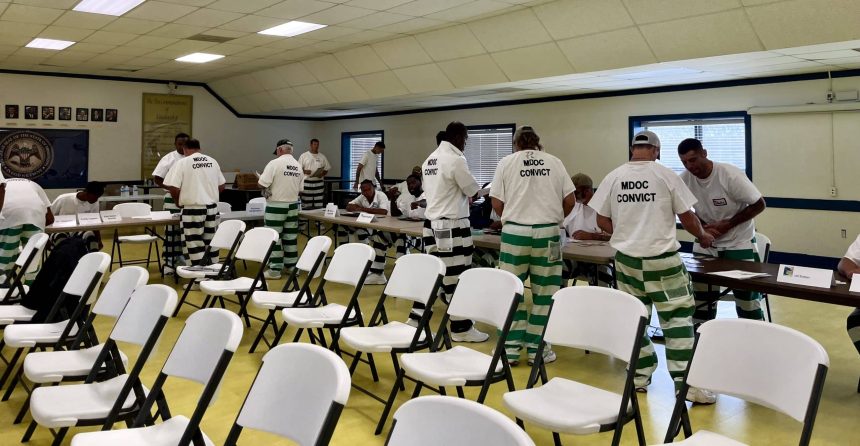The Mississippi Department of Corrections (MDOC) has launched a new Reentry Academy aimed at helping prepare inmates across the state before they are released on parole.
The program, which is conducted by Deputy Commissioner of Programs, Education, and Reentry, Kelley Christopher, allows certain offenders to attend the academy in order to become eligible for presumptive parole.
Reentry Academy eligibility requirements include the following:
- Must be within 12 months of release
- Must not have not received a major or serious violation report (RVR) within the past six months prior to enrollment
- Must agree to remain at his or her current facility until the curriculum is completed
- Must sign a contract and adhere to the conditions of that contract
Presumptive parole is a part of the criminal justice reforms adopted by the legislature during the 2014 regular session which allows offenders to be released without undergoing the formal parole process of having a formal hearing if certain requirements are met.
“It’s based on presumptive parole, which means that if you have a nonviolent charge and we write you a case plan when you get here. If you fulfill that case plan, then when it’s time to go up for parole, they don’t even need a hearing,” Christopher said. “They just review everything they’ve done and if you’ve had no disciplinary reports, no RVRs, there’s a good chance they’re going home.”
Those requirements include:
- The offender has not been convicted of a violent crime or a sex crime
- The offender is not eligible for geriatric parole
- The offender has met the requirements of their case plan
- The offender has not received a serious or major violation within the past six months
- The offender has agreed to the conditions of supervision
- The inmate has a discharge plan approved by the parole board
- The victim of the offense did not request a hearing
Each inmate is required to first obtain a high school diploma, GED, or HED before progressing through four stages, with the total amount of classroom hours equaling exactly 200 hours from 10 classes combined.
“We have the the first reentry academy in the state of Mississippi. It’s really a 200 hour program, which in reentry world is like the magic number. You go over that and it feels punitive and it you go under that, it’s ineffective,” Christopher stated.
Throughout the program, residents must undergo courses focusing on obtaining the needed education and certification needed to be employed after release, as well as attend classes that teach offenders current social norms and customs.
“They focus on social skills, life skills, how to get through a job interview, how to compose an email, how to look for a job,” Christopher explained. “Getting them ready for what the world is like now.”
Once all 200 hours are completed, the offenders must successfully pass a final exam that simulates the process inmate’s experience when released from prison.
“They have two tries at it and if they go to jail at all, they do not graduate from academy,” Christopher added. “We’re going to back them up and figure out what is happening. Is he just panicking and not thinking clearly? Is he not managing his money or his transportation tickets? There’s something happening there where we’ve got a disconnect, but we’re not going to graduate him.”
The simulation gives inmates a checklist of tasks inmates will need to complete each week at a wide array of stations such as paying for rent and utilities, food, counseling and treatment, UA tests, child support, and more.
Participants must also learn how to make money during the simulation in order to pay for each step, whether through a job, selling blood and plasma, or by committing a crime.
Christopher explained that each inmate is given two tries to complete the simulation without going to the designated jail station, which participants are sent to if a required task is not fulfilled by the end of the round.
“They have two tries at it and if they go to jail at all, they do not graduate from academy,” Christopher added. “We’re going to back them up and figure out what is happening. Is he just panicking and not thinking clearly? Is he not managing his money or his transportation tickets? There’s something happening there where we’ve got a disconnect, but we’re not going to graduate him.”








